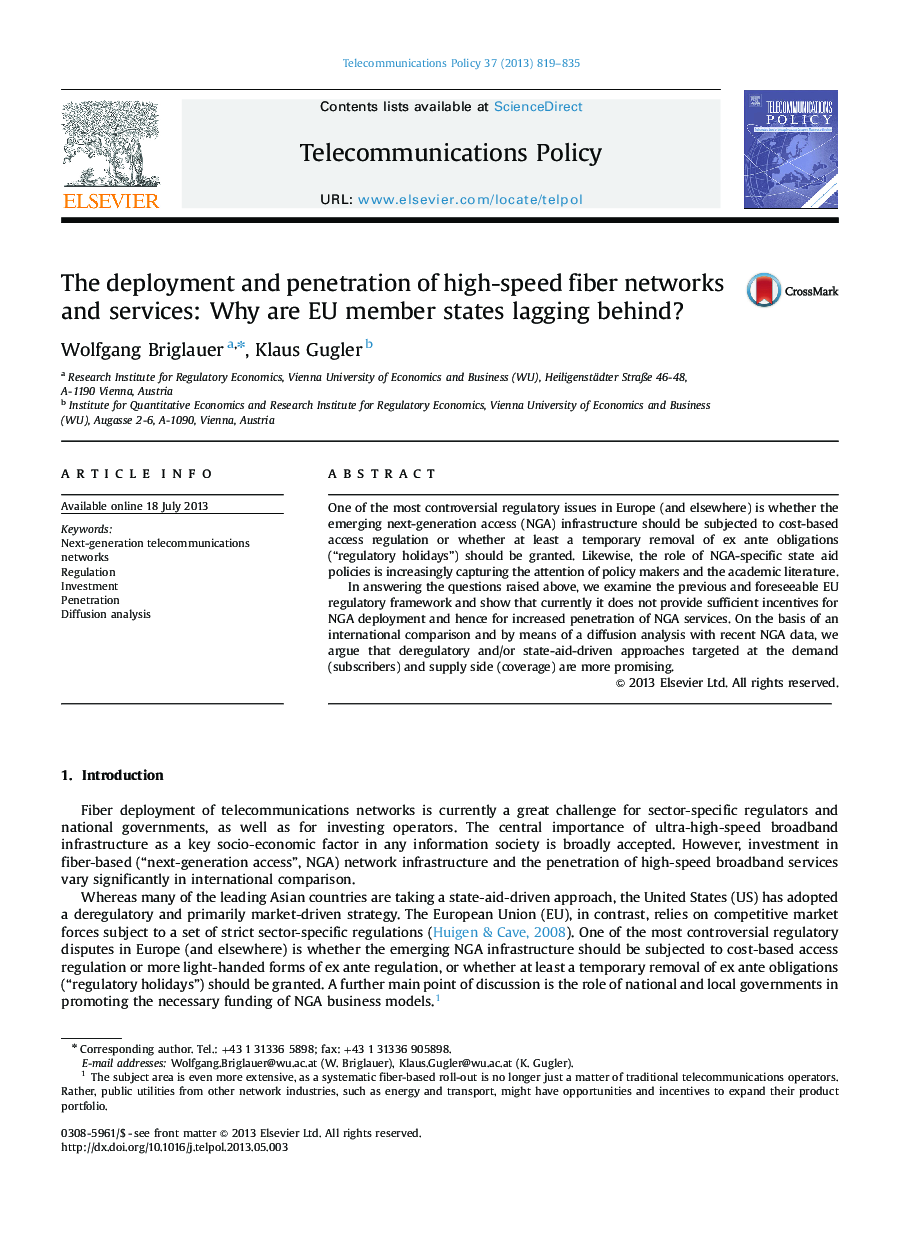| Article ID | Journal | Published Year | Pages | File Type |
|---|---|---|---|---|
| 556743 | Telecommunications Policy | 2013 | 17 Pages |
•EU approach of cost based access regulation is inefficient for NGA deployment.•EU27 states are mostly lagging far behind in terms of coverage and penetration.•Diffusion analysis shows that aims of Digital Agenda are unrealistic.•Deregulatory and/or state aid driven approaches appear to be more promising.
One of the most controversial regulatory issues in Europe (and elsewhere) is whether the emerging next-generation access (NGA) infrastructure should be subjected to cost-based access regulation or whether at least a temporary removal of ex ante obligations (“regulatory holidays”) should be granted. Likewise, the role of NGA-specific state aid policies is increasingly capturing the attention of policy makers and the academic literature.In answering the questions raised above, we examine the previous and foreseeable EU regulatory framework and show that currently it does not provide sufficient incentives for NGA deployment and hence for increased penetration of NGA services. On the basis of an international comparison and by means of a diffusion analysis with recent NGA data, we argue that deregulatory and/or state-aid-driven approaches targeted at the demand (subscribers) and supply side (coverage) are more promising.
